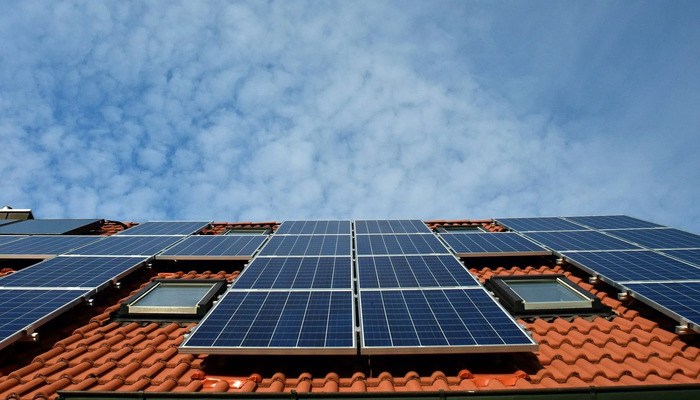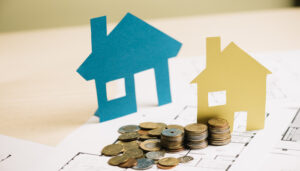Solar energy loans are becoming an increasingly popular way for homeowners and businesses to transition to clean energy in South Africa. With the rising costs of electricity and a growing demand for sustainable energy solutions, solar power is an investment that offers long-term benefits.
However, the initial cost of installing solar panels can be daunting for many. That’s where solar energy loans come in, providing a way to spread the cost of this eco-friendly upgrade over time, making it more accessible for everyone.
If you’re considering solar energy for your home or business, understanding how solar energy loans work is key to making an informed decision. Keep reading to discover how these loans can help you save money while contributing to a greener future.
Why Solar Energy is Gaining Popularity in South Africa
South Africa enjoys an abundance of sunlight throughout the year, making it an ideal location for solar energy. The country’s energy grid is under strain, and traditional energy sources, such as coal, are not only costly but also harmful to the environment.
Solar power, on the other hand, offers a clean, renewable source of energy that can help reduce dependence on the grid and lower carbon emissions.
Additionally, with the increase in electricity tariffs, the long-term savings from solar energy can be significant. By generating your own electricity, you can minimize your monthly energy bills, making solar power an attractive option for both financial and environmental reasons.
The Role of Solar Energy Loans in Making the Switch
Despite the numerous benefits of solar energy, the initial investment required for installation can be a significant barrier for many people. This is where solar energy loans come into play. These loans are designed to help individuals and businesses finance the installation of solar systems without paying the full amount upfront.
A solar energy loan typically offers lower interest rates than other types of loans and may have flexible repayment terms. This makes it easier for South Africans to transition to solar energy and start benefiting from clean power without the financial burden of paying the entire cost upfront.
How Solar Energy Loans Work
When you apply for a solar energy loan, the lender will typically assess your creditworthiness and financial situation. Based on this evaluation, you will be offered a loan amount that covers the cost of your solar panel installation, including the equipment and labor.
Some loans may also cover additional costs, such as the installation of energy storage solutions (batteries), which allow you to store excess energy for later use.
The loan repayment terms vary depending on the lender and the loan amount but typically range from 12 months to several years. Interest rates are generally lower than those of personal loans, making it an affordable option for most individuals.
The key advantage of solar energy loans is that you can start saving money on your energy bills as soon as the system is installed, potentially offsetting the cost of the loan over time.
Benefits of Solar Energy Loans for South Africans
-
Lower Monthly Energy Bills
One of the biggest benefits of going solar is the reduction in electricity costs. South Africans are no strangers to rising electricity prices, which can take a significant toll on household and business budgets. By financing solar panel installation through solar energy loans, you can begin to save on energy costs almost immediately. Over time, your savings on electricity bills can help offset the loan repayment, making it a financially viable option for many. -
Environmentally Friendly Energy Source
Solar energy is a clean, renewable resource that reduces your carbon footprint. By investing in solar panels, you are contributing to the global effort to combat climate change. As the world increasingly turns to sustainable energy solutions, switching to solar power is a responsible choice for both individuals and businesses. -
Increase Property Value
Solar panels can also increase the value of your property. Homes and businesses equipped with solar energy systems are often seen as more attractive to potential buyers due to the long-term savings and environmental benefits. The installation of solar panels can be a great investment for property owners who are looking to improve the value of their real estate. -
Government Incentives
The South African government offers various incentives for individuals and businesses that choose to install solar energy systems. These incentives may include tax rebates, grants, and other financial assistance programs. When combined with solar energy loans, these incentives make the transition to solar power more affordable than ever.
How to Apply for a Solar Energy Loan in South Africa
Applying for a solar energy loan in South Africa is relatively straightforward. Many banks, financial institutions, and even solar companies offer financing options for solar installations. Here’s a general outline of the application process:
-
Assess Your Needs
Before applying for a loan, it’s important to assess your energy needs. This includes determining how much energy your household or business consumes on a monthly basis. A qualified solar installer can help you estimate the size of the solar system you need to meet your energy demands. -
Choose a Lender
Research different lenders to find the best loan terms for your needs. Some banks offer specific solar energy loans, while others may offer personal loans that can be used for solar installation. Compare interest rates, loan terms, and eligibility requirements to make an informed decision. -
Get a Quote
Once you’ve chosen a lender, you will need to get a quote from a certified solar installer. This will give you an estimate of the cost of installation, including the cost of panels, inverters, and other necessary equipment. The quote will be used by the lender to determine the loan amount. -
Apply for the Loan
Submit your loan application with the necessary documentation, which may include proof of income, identification, and your solar quote. The lender will evaluate your application and decide whether to approve the loan. -
Install Your Solar System
Once your loan is approved, the solar system will be installed by a certified installer. After installation, you will begin enjoying the benefits of solar energy and start saving on your monthly electricity bills.
Things to Consider Before Applying for a Solar Energy Loan
While solar energy loans offer a great way to finance the installation of solar systems, there are some important factors to consider before committing to a loan:
-
Loan Amount and Interest Rates
Make sure that the loan amount is sufficient to cover the full cost of installation. Also, be mindful of the interest rates and how they will affect your monthly repayments. Opt for the most competitive rates available to minimize your financial burden. -
Repayment Terms
Consider the repayment terms carefully. Choose a loan term that aligns with your budget and cash flow. While longer terms may result in lower monthly payments, they may also mean that you pay more interest over time. -
Solar System Efficiency
Ensure that the solar system you choose is efficient and will meet your energy needs. A professional installer can help guide you through the process of selecting the best system for your home or business.
Conclusion
Solar energy loans offer a fantastic opportunity for South Africans to invest in clean, renewable energy while saving on their electricity bills. With the rising cost of power and the environmental impact of traditional energy sources, switching to solar power is a smart choice.
By utilizing solar energy loans, you can finance the installation of a solar system that will not only reduce your energy costs but also contribute to a cleaner, greener future.
With the right financing options in place, switching to solar energy has never been more affordable. Take the first step toward energy independence today by considering solar energy loans to help you save with clean energy.





